What's the Java equivalent of this Kotlin declaration?
var doOnAppCouldNotBeFrozen: ((Context) -> Unit)? = null
I think this is a "function type" but I'm not sure. Is it a method or a variable? I know that Unit means void so then is it a method that returns void?
The only way I can understand what it means is if I can see how it's written in Java (without the question mark after Unit).

